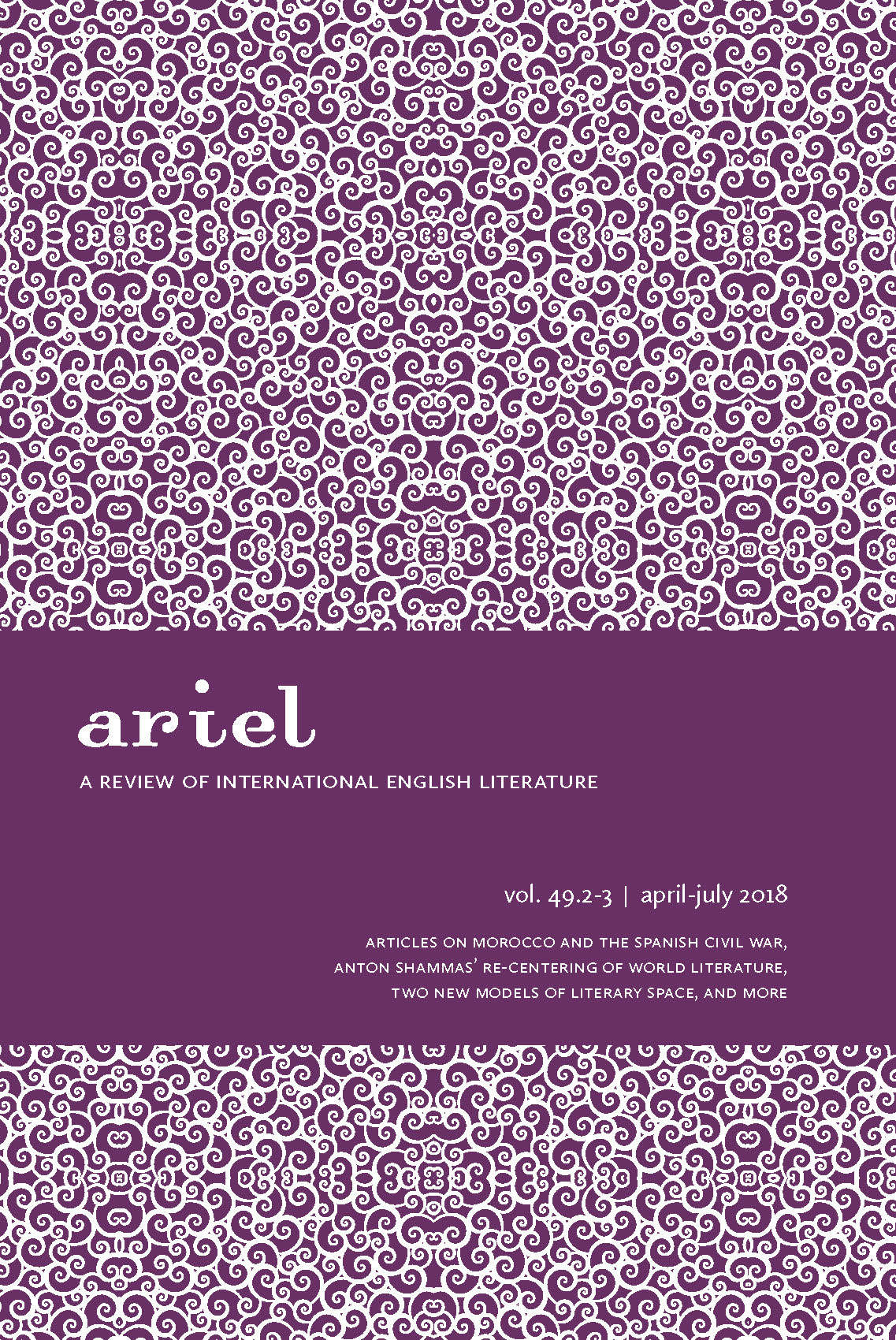To Become so Very Welsh: Denis Williams’s The Third Temptation and the Effacement of Afro-Caribbean Identity
Abstract
This essay resituates Denis Williams’s underexplored second novel, The Third Temptation, in terms of racial and colonial violence. Published in 1968, the largely forgotten novel, a highly experimental musing on identity that shares much in common with the Nouveau Roman movement, is seldom addressed in terms of postcolonial or Caribbean literature, in part because all of the major characters are white Europeans—and because the novel is set in Wales. My essay suggests that the novel’s absence of black identity functions as a critique of Welsh colonialism, evidenced in the text both by Williams’s personal experiences in Wales—and repeated, veiled images of Welsh missionary William Hughes, who worked exhaustively to convert African children into Welsh Christians. I suggest the experimental collapse of subjectivity in the novel is designed to mirror the process by which Hughes attempted to efface African identity. Turning to a history of Hughes’s Congo Institute—as well as Williams’s own struggle to reconcile his role as a European artist with his Afro-Caribbean roots—I demonstrate how the novel’s experimentation with perspective is enacted to examine Wales’s often-overlooked involvement in colonial oppression.


